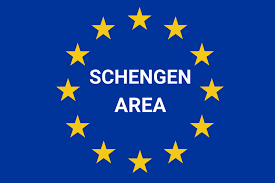Schengen Area Faces Temporary Border Controls: Ensuring Safety Amidst Global Challenges

The Schengen Area, comprising 27 European member countries, has long symbolized the essence of open borders and seamless travel. However, recent developments have brought about a temporary shift in the paradigm, highlighting the complexities of balancing safety and freedom in the modern world.
Latest news
As we delve into the latest news, a noteworthy dec...
The MTI, drawing information from local press, und...
It's essential to understand that Schengen st...
In response to these critical challenges, Slovenia...
Key Notes
It is crucial to acknowledge that these measures are not indicative of the "End of Schengen." Instead, they signify a commitment to ensuring the safety and stability of European states amidst evolving global challenges. The Schengen Area continues to stand for the ideals of unity and open borders, but it also remains adaptable and resilient in the face of unforeseen circumstances
Worldwide Visa Information for Pakistani Passport:

